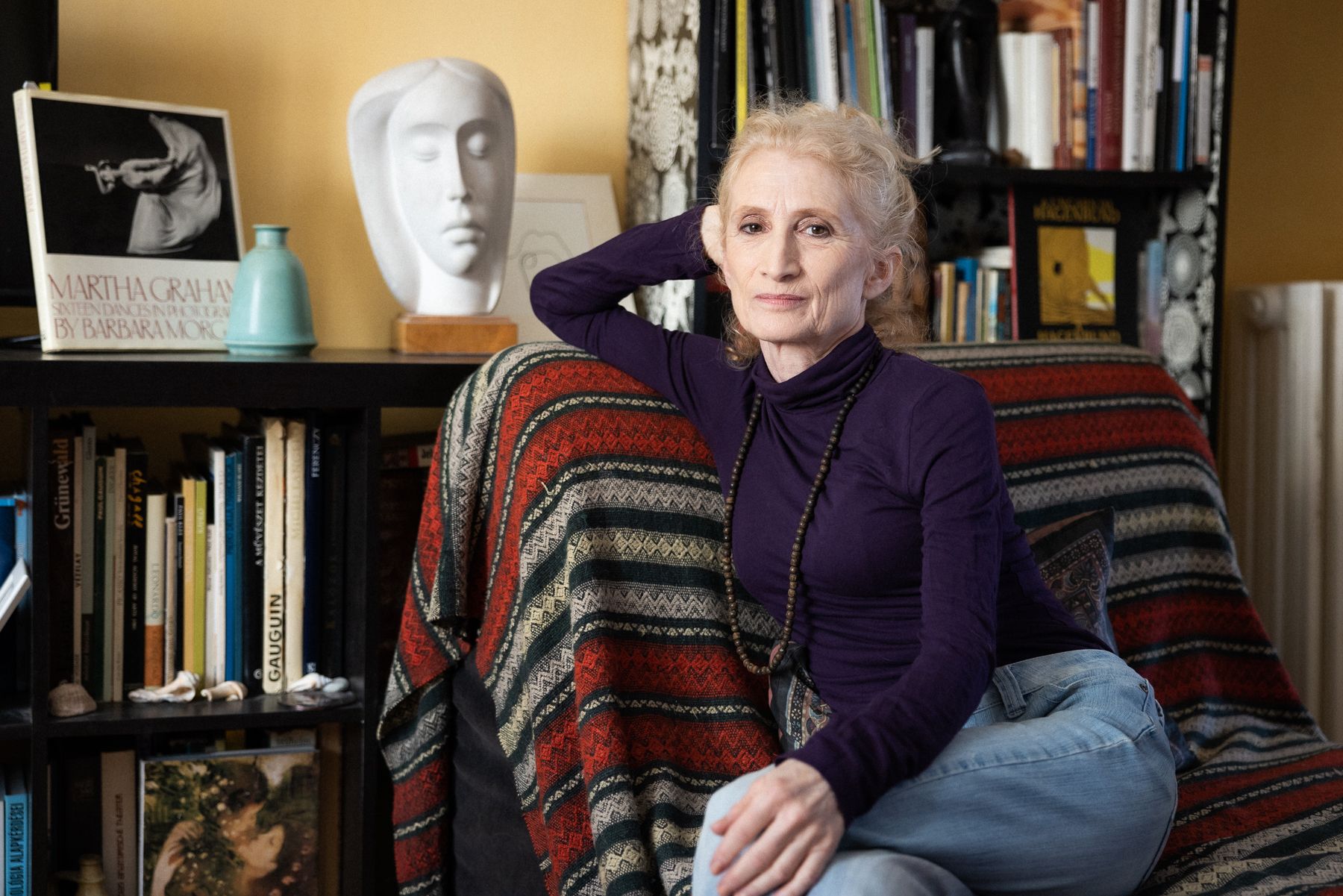Over the past decades, she has worked with several European companies from Stockholm to Brussels. Katalin Lőrinc is an iconic figure in contemporary dance, and not only when it comes to choreography. In her TED talk two years ago, she opened many people’s eyes to why it’s good to listen to what messages and signs our own body whispers.
Although Kati has recently gone through a nasty illness (which has also very much overwritten her eating habits), she welcomed us warmly into her new home in Újlipótváros. The unadulteratedly eclectic “artist’s apartment” is devoid of mannerisms and insincerity: souvenirs, lovely knick-knacks, story and reference books, paintings and prints are interspersed, but there are also a few letters to Santa from Kati’s children Lili, Kata and Andris, and sometimes the sixteen-year-old cat Shira pops out of a corner. What was the ominous dessert that was served on their table at Christmas (and has been part of the festive menu ever since), and what “accidents” can happen to a promising apple pie? Kati told us about these, too.
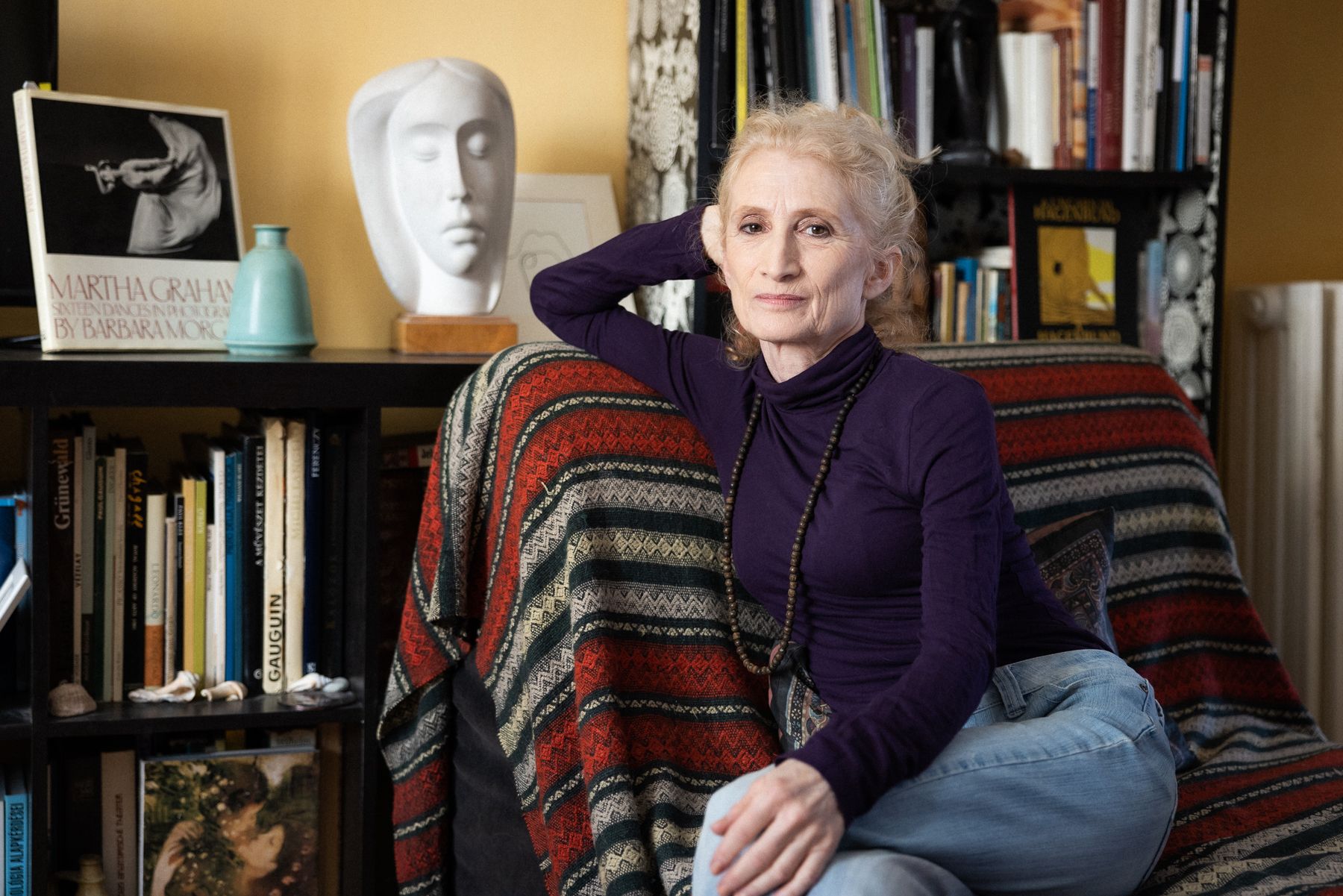
Your parents were ballet masters and you started ballet at the age of eleven. Discipline, restraint, perfectionism (even self-restraint)—I imagine these were the defining characteristics of your childhood and youth. Am I wrong? How do you remember?
Of course, I’ve had my fair share of suffering. I did some “body shaping” tricks (like sleeping on my stomach, legs open with my thighs wrapped in nylon, or “breaking” my instep with my own weight, and so on)—I starved myself for a while when I was about to go through puberty…
In your lecture “Your body whispers,” you (also) talk about how much we have pushed our own childlike curiosity into the background and how much we have forgotten to “read” the signs of our body. What would you say is the way to awaken this dormant curiosity? Are there any best practices that might work?
Characteristics and psycho-spiritual qualities are difficult to “develop,” to “create”—to be interested (also) in the world outside yourself is not enough to have an intention. Perhaps I would suggest that frequent changes in the environment and stimuli can help, so not to sit around, cocooned in the familiar, the safe. Obviously, you’re careful, you’re cautious, but you have to let yourself go here and there through your human relationships.

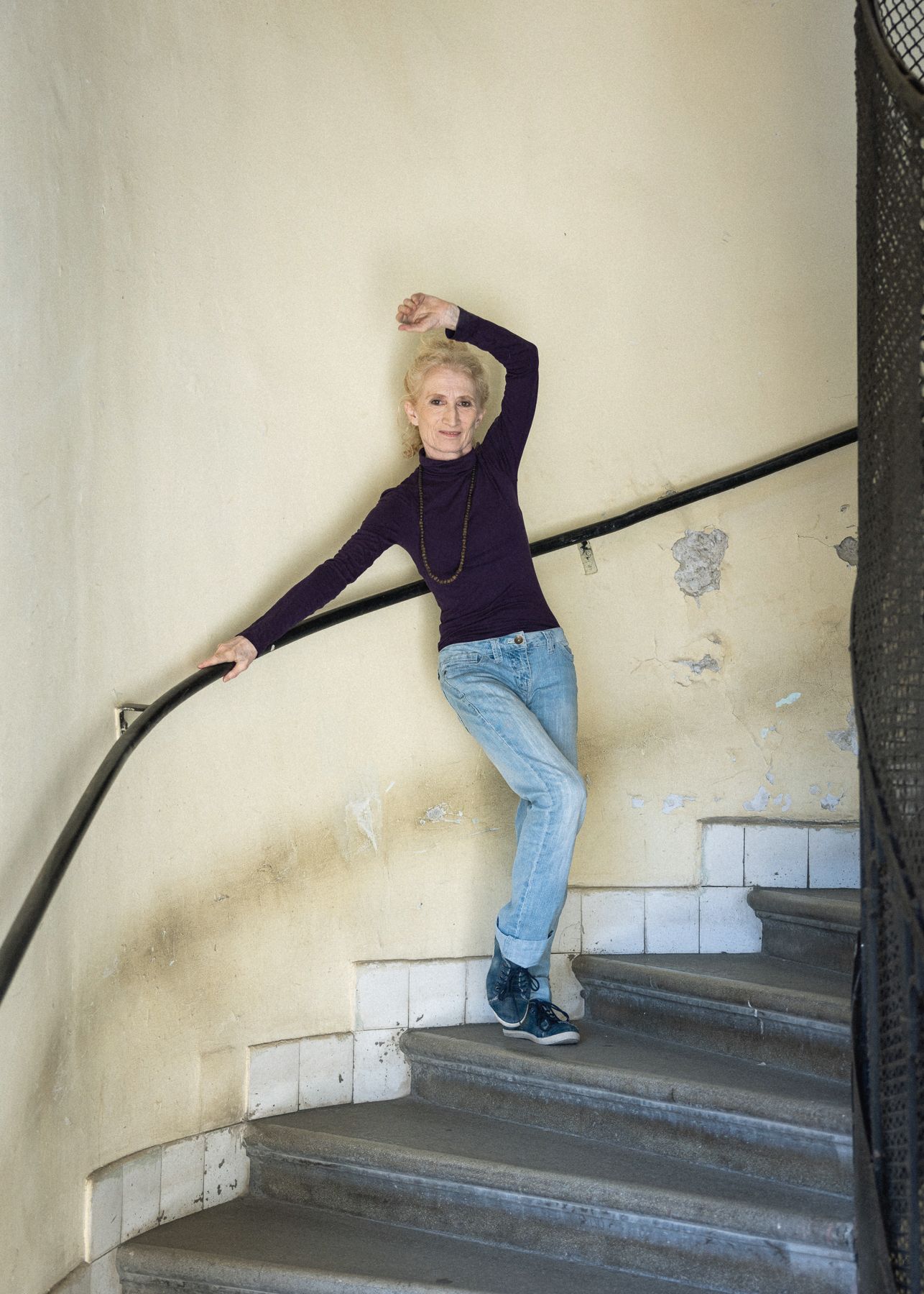
As I was listening to you, it also occurred to me that you are actually talking about intuitive eating. This concept first came to light in 1995 when Evelyn Tribole and Elyse Resch wrote their book “Intuitive Eating.” This kind of adaptive eating is actually about eating according to your body’s needs rather than following strict dietary rules. Is this a blessing or a curse? How easy or difficult is this task? Especially in this day and age, when more and more people are suffering from food intolerance. How have you experienced this?
Luckily for me, I don’t have or know of any food intolerances or allergies—in our generation, this is even less common. Looking back, I would add that my intuition was accompanied by a great deal of awareness and knowledge of facts. This means I studied the various nutritional tables from the age of twelve to find out which foods contained what and what they were good for. So I always had some knowledge of the food that I intuitively took in, what they contained, and what it meant for my body. And that somehow always confirmed that my body was choosing what was best for it. Here and now, however, I have a shocking new experience: I was going through a pretty nasty case of esophagitis (me, who has never been sick before, but this one, in parallel with a postcovid, flared up). I couldn’t eat anything but a few drops of liquid for a couple of days, and then I was put on a strict diet. In this situation, I find that even though I am intuitive, this doesn’t work when I’m sick… Rough. Me, who started every morning with a squeezed orange juice for the past few years, enjoying how good it felt—now it is strictly forbidden for me to drink it since it’s something that is acidifying. So, now it’s a bit of a topsy-turvy system. But it will come back…
During your presentation, I thought it seemed more of an effort for us Central Eastern Europeans to become comfortable with intuitive eating. We were simply taught differently: “Just one more bite…”, “One bite for Mom’s sake…”, “Don’t play with food…”, or “You don’t leave the table until you eat this…”—and so on. Our parents’ and grandparents’ generation may think intuitive eating is a fashion fad, but our children may take it for granted. What do you think?
It’s a terrible fixation. Not just because it has already brought up a generation of overweight people, but also because it has brought up a generation of people who are not capable of thinking for themselves about their diet but will always follow some norm. When they grow up and the parent is no longer there, they will be following some other norm, dictated from the outside too—and we know that today, in the age of social media, this is dizzyingly extreme. You can go mad, reading in one place that you should not eat eggs because they are so harmful, in another place that you should eat one egg a day because… And things like that… Is it any wonder that people live in uncertainty and destroy their own health?
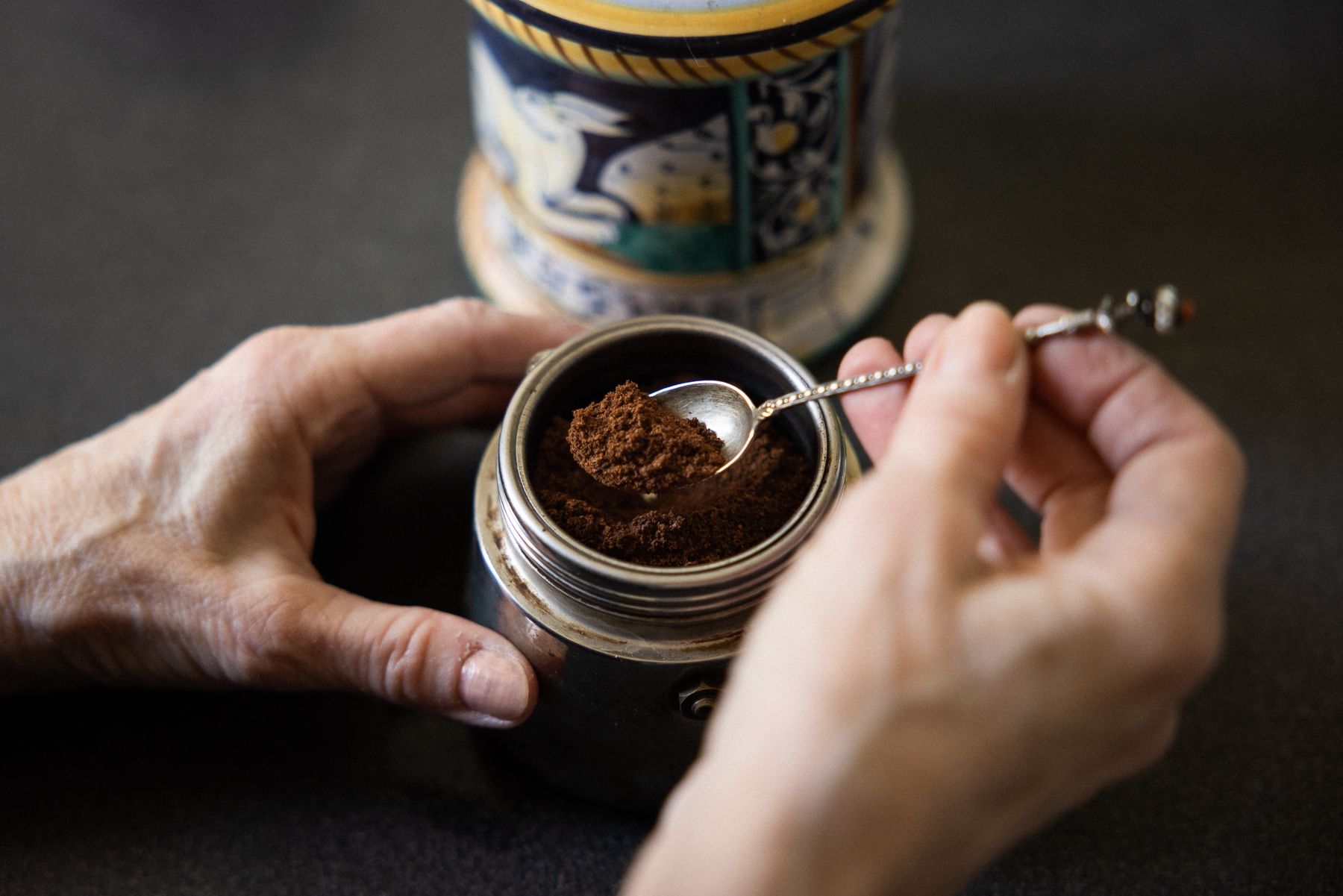
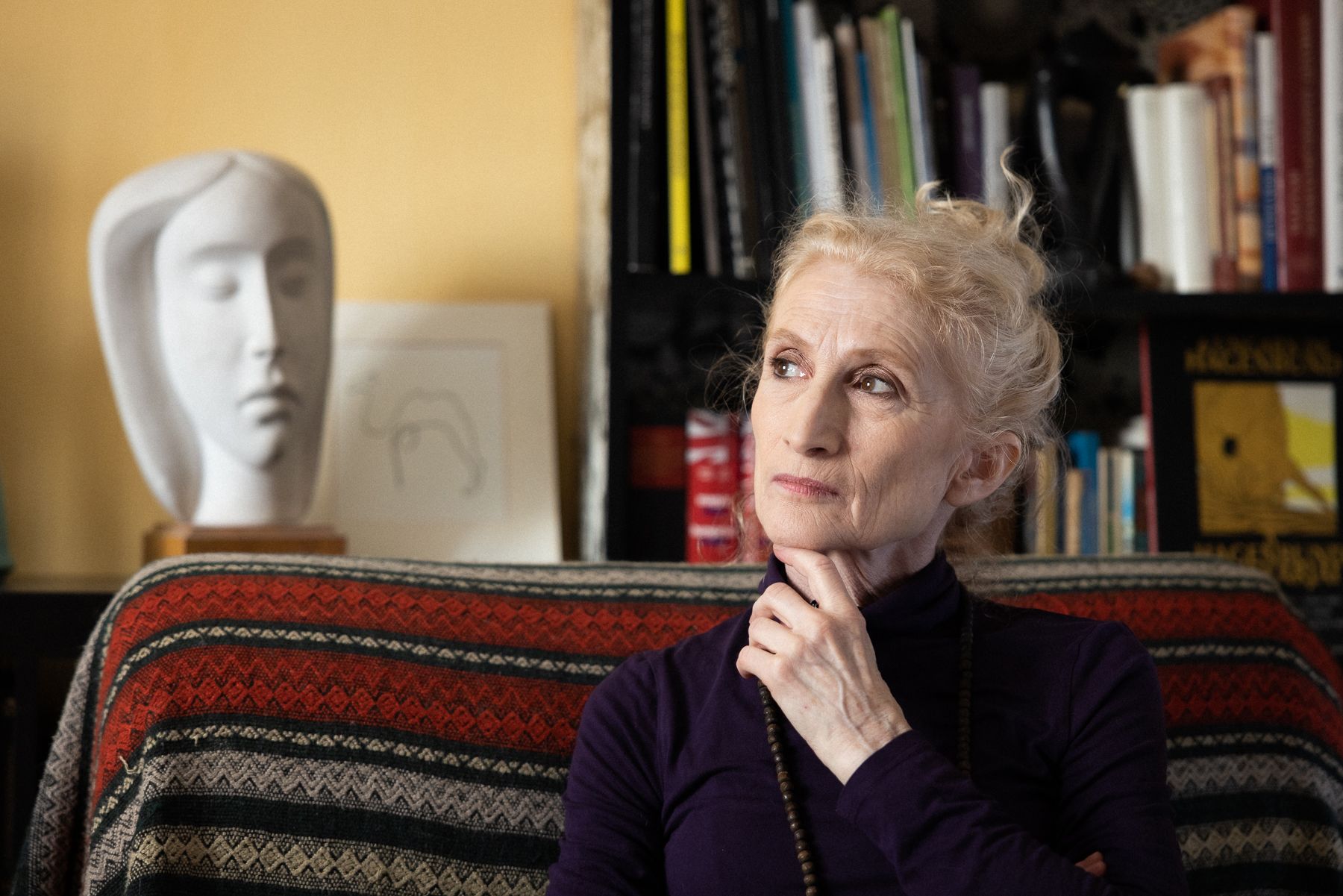
I don’t know what will happen to our children… Mine (although when they were little, they mostly ate the same things: sausage, chips, homemade pizza, vanilla pudding, these were the stars), and then I let them become independent (choose who ate what and how) within the limits that I could manage. Pizza was the best way to do this: I made it in a giant pan and had four toppings, depending on what you like: how much cheese or tomato, etc. Then they had quite different tastes. My son, who was barely willing to eat any fruit and vegetables as a child, now lives happily in a vegan household! My elder daughter, who has a wide range of allergies and immune problems, is extremely health conscious and is particularly keen on organic food. This is how she feels good. My middle child has also changed her diet for her own reasons, even though she was my biggest French fries eater before.
Perhaps they would have been better off if I had been stricter with them as children about exactly what to eat, but that just doesn’t come naturally from me as a parenting principle. Nor did I control them in any other way: I let them each do what they felt like doing. It comes from me. If I demand freedom in my own life, I don’t restrict it in others.
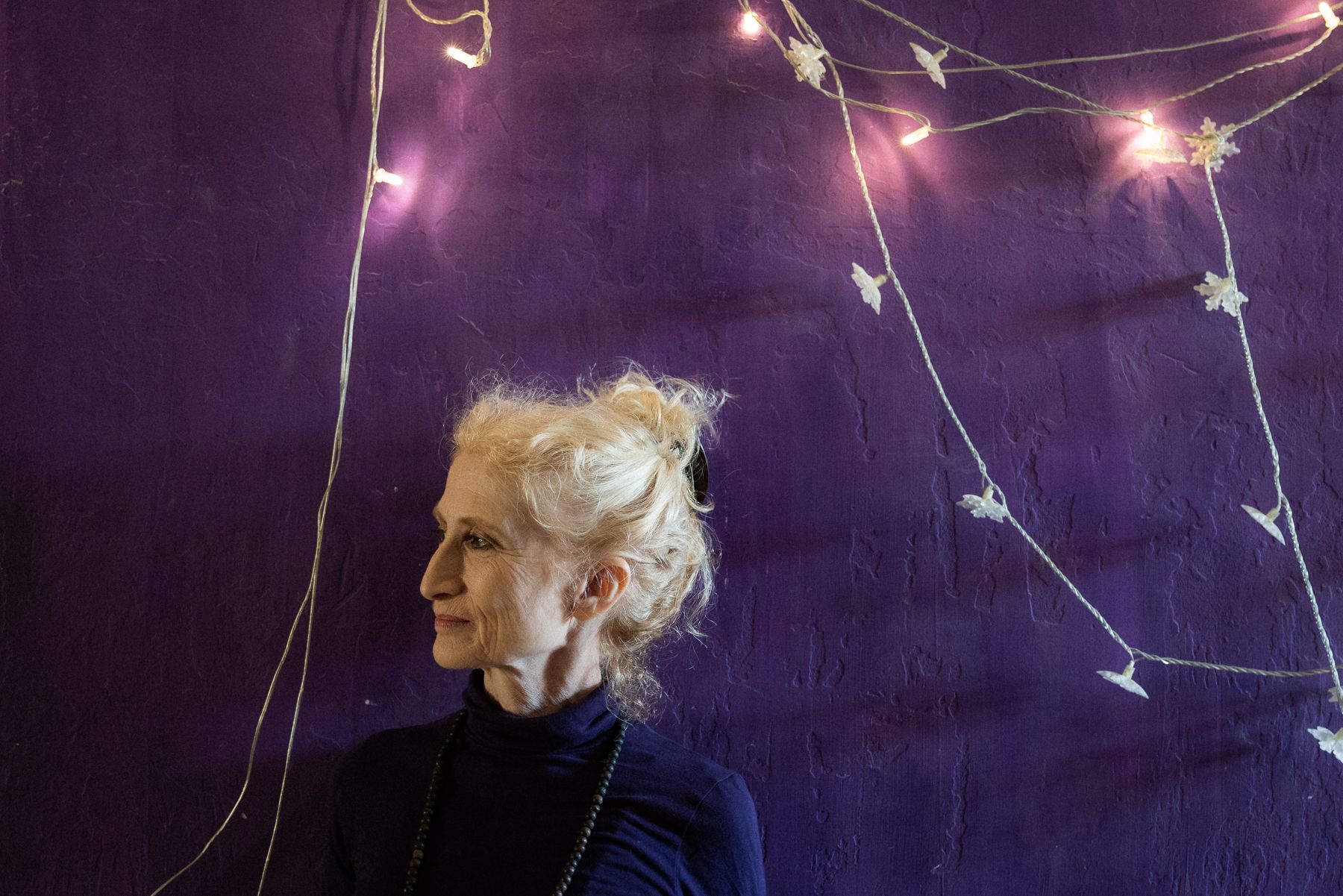
And some more questions about food…
The first dish I made:
It was cheese soup when I was thirteen. I used to make things with my mum in the kitchen. At the time, I was writing a recipe book for weight loss, I was at the ballet institute, and I only tried a few things from the book, it was full of crap. But I tried this cheese soup and it was good.
What do you think should not be missing from the Sunday lunch table?
Well, it starts there, whether it’s flowers or candles—seasonally, there should be something to brighten up the table. Food-wise, it almost doesn’t matter: it should be something that everyone enjoys. A variety of side dishes, a variety of drinks (…) But what my Sunday lunch should always have is dessert. Lunch without dessert? (…) When I asked what to cook, what should be the Sunday lunch (it was always a group question), my (children) brought some standards, but there was not much soup. Max. The combo of tomato soup and cottage cheese dumplings. That was okay!
Which food gives you the greatest comfort?
My own salads. The thing is, I can always make something from leftovers anyway. I improvise on what to include. It should have a bit of this, a bit of that, this dressing or that dressing. And it’s not just about inspiration. It depends on what you have at home at the moment. And that somehow always makes it work because it’s delicious, it’s simple, and I feel that I’ve finally used up that little bit of pumpkin seeds, or I knew I wasn’t putting that little bit of yogurt aside for nothing.
For me, as a child, my mother (or anyone in the family) cooked keeping in mind that my father couldn’t physically handle the garlic and onions. We would call it an allergy today, we didn’t know that then—not out of hysteria, not out of squeamishness, he simply had physical symptoms from it. Now, cooking in Hungary without garlic and onions is a bit bizarre. For example, in the chicken with paprika, which is one of my very good food memories, we didn’t fry onions; instead, carrot slices were fried in the fat. And there was no radical difference in taste.
Is there a food you’d prepare even at 2 am?
For example, an “all-in” salad like this, if needed (and if I have the ingredients). Or, so is the classic Croque monsieur.
Are there any ingredients or dishes that you have rediscovered in recent years?
There are many! And it’s actually thanks to communication that I’ve rediscovered wild garlic. I had a very short period with the Pécs Ballet in the eighties, and the Mecsek is the “home” of the wild garlic. We drove through the Mecsek, and I said, “What’s that smell?”. “Well, the wild garlic, it’s blooming now”, they said. It was not in fashion then. But so was the corn salad, which I love. My mother, who was born in Germany, used to eat it when she was a child, but we didn’t have it here at all. For me, it was a rediscovery of oriental spices: curry, and tandoori masala.
What do you think we will eat in a hundred years?
I don’t think it will make much difference. Basically, the human body does not change that much in a hundred years, so what you feed it with shouldn’t change that much. Maybe the form will change, the technology of preparation, the fashion of serving, or the way we eat.
Is there anything that can chase you out of the world?
Tripe. But I’ve never tasted it. Just simply that it’s tripe?! That’s not for me. And these things floating in paprika and lard, for example.
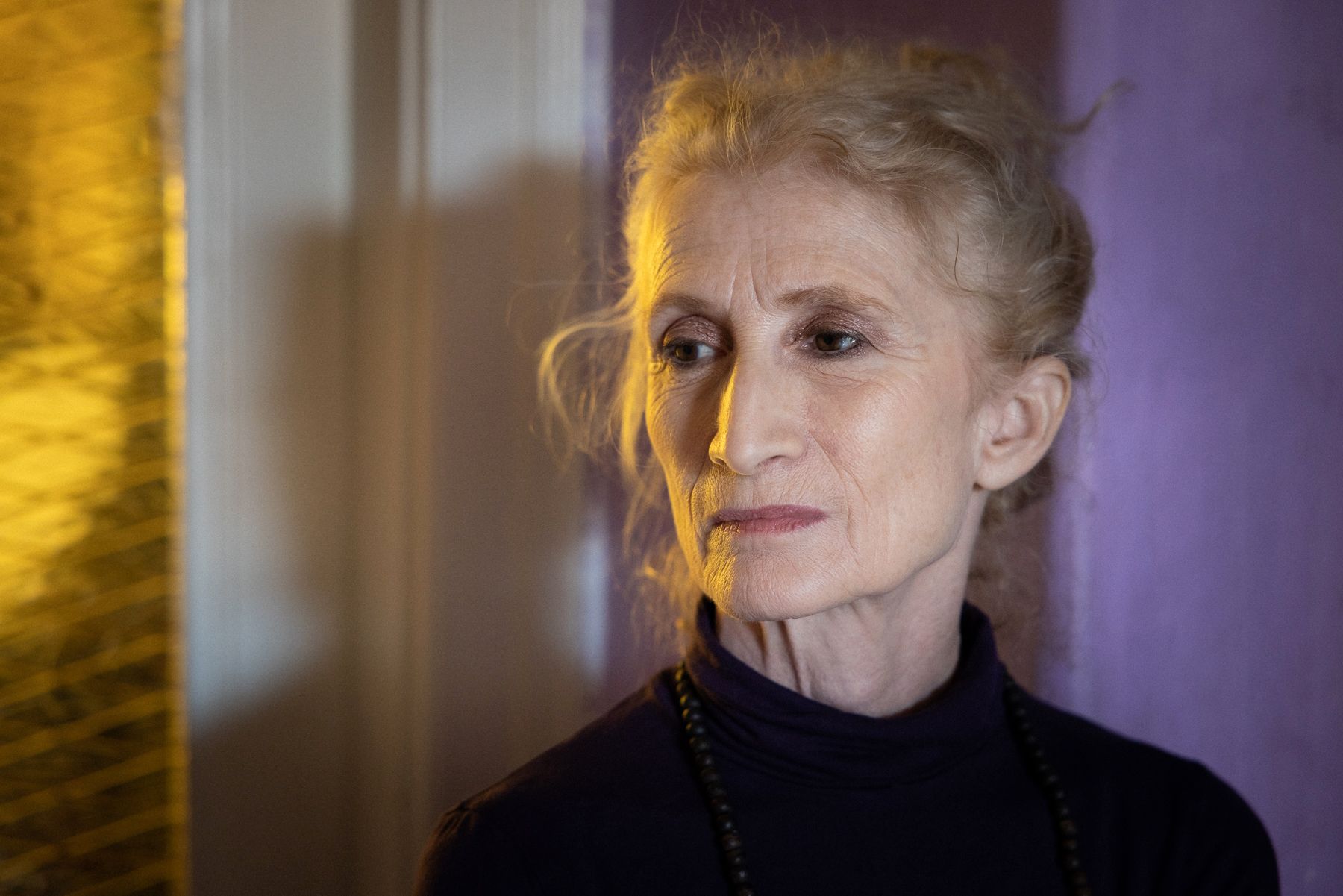
Granny’s cooking:
My grandparents were no longer alive when I was born. My mother’s chicken paprika, which I mentioned before, was so special that from the age of twenty, when I was practically living abroad, every time I came home, I wrote it in advance: “chicken paprika, apple pie”. My mother made the apple pie very well, with real buttered pasta. And the Christmas dinner! But maybe that’s what makes it such a good memory because it was only ever at Christmas, and it was diet, too. It was very simple: my mother cooked chicken breasts with green peas, and then she put butter and milk bechamel on it—that was it! And then a pudding with all sorts of fruit: she bought frozen raspberries, it had oranges in it, pineapple preserves. My brothers and I have been making it ever since: this pudding is a must-have. (…) I wonder how many generations will pass it on.
Food phobia:
Let’s say, for example, the stews swimming in meringue. But I don’t like Fisherman’s soup either, for example, even though I really like fish.
Which meal did you refuse to eat at the school cafeteria?
Well, these wishy-washy stews: had a piece of sausage in them, surrounded by some fat. Mostly this is the genre I didn’t like in the school cafeteria. I wasn’t picky, by the way. From the age of eleven, I went to the Ballet Institute, where everyone was on a diet, and then I collected those cakes that my friends wouldn’t eat. Then came the time when I started dieting, too.
What comes to your mind when you hear ‘kitchen disaster?’
Well, first of all, I have a picture in my mind of an incident when I slammed the tomato soup to the ground. At the time, nothing was working. But I guess that’s not really a kitchen disaster. It’s when you’re doing things all at once, with bad timing, you’ve no more space on the worktop, the sink is full, suddenly you lose track of the order, something’s done earlier than it should have been… For me, that’s a kitchen disaster.
I was already a young adult, making an apple pie with my mother, taking it out of the oven and putting it on the balcony to cool quickly. The pan slipped out of my hand and fell out on the balcony. My mother said, “Oh, I’m glad that I cleaned up this morning!” I scooped up that smear with a big spade and it turned into a weird paste, and when it cooled a bit, I kneaded it all together, made little balls and rolled them in chopped walnuts. It was delicious!
If you’d like to hear more questions we asked, check out the video.
Photos: Balázs Mohai
Katalin Lőrinc | Instagram

The brand that fights ocean pollution in style | Undersea Wear

19th Budapest Design Week coming in October










